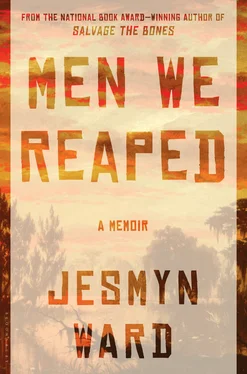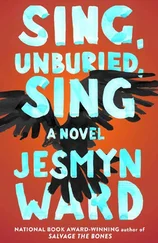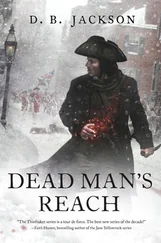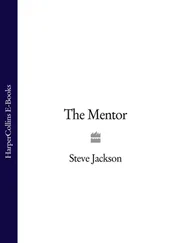Rog dropped out of school in the tenth grade; it’s not uncommon for young Black men to drop out here. Sometimes they are passively forced out by school authorities, branded as misfits or accused of serious offenses like selling drugs or harassing other students: sometimes they are pushed to the back of classrooms and ignored. Rog sat in the back of one such class and beat-boxed while his cousins sang spirituals that substituted the teacher’s name for Jesus’. He left school, worked, and then in 2000 went to Los Angeles to live with his relatives. He loved it. He worked in an auto body shop, made more money than he would have been able to make in Mississippi, and enjoyed the city: theme parks, roller skating rinks, the beach, where the water was blue and rushed the palm-decked shore in waves, so different from our beach, where the dirty gray Gulf lapped desultorily at a man-made beach ringed by concrete and pine trees.
Later, I wondered if it was a kindness to Nerissa, a remembrance of their short middle school romance, that made Rog hang out with us during the 2001 Mardi Gras Pass Christian parade, when he was visiting home. I had been out of college and without a job for almost a year, but I’d booked a ticket and flown home from New York City for Mardi Gras. This added to my considerable credit card debt. I didn’t care. I needed to go home, even if only for three days. My brother was newly dead. I expected him to be alive every day when I woke. On that February day, I did not know he was only the first. It was raining and chilly. We were all subdued, except Rog. He swaggered between clusters of friends and cousins from DeLisle and Pass Christian. He stood at the edges of pictures with a haul of big purple and green and gold beads on his neck, the kind that in normal years we’d plead the loudest for the pleasure of wearing them for a day. My sisters and I huddled under umbrellas and watched the press of people, ignoring the beads that pelted our umbrellas. My three-year-old nephew, newly bereft of his uncle and bewildered by the crowds, hugged my leg. My grief was so great that the sheen of the colorful beads, the music sounding from the floats, the celebration of that day felt like a farce, an insult.
On the day of the first Mardi Gras parade I’d attended after my brother’s death, the reality of Joshua’s absence was soothed by Rog, his easy smile, his arm casually slung over my or my sisters’ shoulders. Hey , he said. And then: What’s up ?
I don’t know why Rog returned home to Mississippi for good in 2002. I imagine that it was because he was homesick, because he missed the narrow, tree-shaded streets of Pass Christian, the houses scattered here and there and set twelve feet high on stilts to protect them from hurricane storm surges. Maybe he missed Mrs. P., his sisters Rhea and Danielle, his large extended family scattered through Pass Christian and DeLisle, his cousins. Many leave and never come back, lured away by cities where it’s easier to find working-class jobs, where opportunity comes easier because those in power are less bound by the culture of the South. But I’ve heard others who’ve moved away from Mississippi, worked for five, ten years of their adult lives somewhere else, and then moved back to Mississippi say: “You always come back. You always come back home.”
The first night Charine and I went to Rog’s house in that summer of 2004 after Aldon and I had driven home from Michigan, we didn’t go inside. Our cars lined the street, bumper to bumper. The night swooped down in great black swaths, and the streetlights, spaced far apart, shone weakly. Insects swarmed in foggy clouds around the bulbs, dimming them even further so we were dusky shadows, and the stars dozed on the dome of the sky like larger, distant insects.
The boys turned the bass up on their car stereos, and we sat on their trunks and hoods, jiggling to the beat, sweating and sliding down the steel. Rog walked over, his Budweiser in one hand, his other hand waving like a child’s slicing through the air out of the passenger window of a car.
“Aaaaawwww,” he said, and hugged all three of us at once: me, Tasha, my brother’s last girlfriend, and Charine. He half jumped on us. Threw his leg over the row of our feet.
We laughed. We could laugh when we were drunk, even in the summer of 2004.
“All right, Rog,” Charine said. “You messing up.”
“What you mean?” Rog slid off us.
“I can’t feel the trunk with you jumping like that. Do you feel that?” she asked me.
“Like a massage, huh, Charine?” Rog said, and then he passed her a black cigar. “You dead wild.”
He danced around the trunk that night, kept us laughing. His smile never disappeared from his narrow face. While the other boys huddled in their cars, having conversations that we were not privy to, discussing and doing things I had no idea they did, Rog held court with us. He reminded me of Aldon. There was something gentle about him, considerate. Good. The first time he saw one of his younger cousins experimenting with weed in the street in front of his house, he stopped him. He walked up to him in the dark and said, “Aw, man, what you doing? You need to cut that out. You don’t need to be fucking with it like that.” His younger cousin laughed; he was already high.
We partied inside the house only once that summer. We were drinking. We were always drinking. But it was a different kind of drinking from what we’d done the previous summer. That drinking had been insane, ecstatic. We’d taken shots of Everclear that summer, felt that liquor running through us, thrumming: for this moment, you are young and alive. Live, more. The summer of 2004, we were no longer rebel drinkers, imbibing to break rules, to shit on mores. Now, we were subdued drinkers, drinking to forget. By the summer of 2004, we knew we were old: by the end of the summer, we’d know we had one foot in the grave.
On that night at Rog’s house, we’d gotten cases of Budweiser, Rog’s favorite beer, and we were playing dominoes, smoking, and talking. Charine, who never drank, decided that she was going to drink instead of smoke that night. I stood in the back room, which felt like a screened-in porch, and talked to my younger cousin Dez, who like most of my younger cousins stood taller than me, so he had to bend over when I spoke. He asked me about my writing, what I was working on, and I told him: a book about twin boys, young men, from a place like DeLisle. He made me feel embarrassed when he praised me in the dark room, under the music, for writing about “real shit,” he said. I sipped my beer: I hated the taste of it, but I loved the buzz of it. Charine downed her liquor, drink after drink, until she staggered past me.
“I need to go to the bathroom,” she said.
Rog led us down the hallway as I walked Charine through his mother’s room to her private bathroom. I turned on the light, and Charine sank to her knees, let her head fall in my lap, and passed out. Unconscious, she threw up. Rog disappeared, then reappeared.
“She all right? She need to drink some water.”
“Yeah, she a lightweight,” I said, stroking her hair, staring blearily at the yellow rug.
For the two hours we sat on the floor of his mother’s bathroom, Charine asleep in my lap, me drinking the last of my warm beer, nursing my dark buzz, Rog came with offerings: one glass of water, two glasses of water, potato chips, bread for Charine’s stomach. Charine drank the water but refused the bread and chips, so I ate them. When I’d sobered up enough to drive, Rog helped me bring her out to the car and saw us off into the bayou, the night.
The next day Charine and I visited Rog. The day was hot and bright, cumulus clouds like mountains loomed in the sky, but it did not rain. Rog was sitting in a hard plastic chair, and when Charine and I walked up the driveway to the carport, he dragged over two other chairs, metal with plastic weave. We sat. I was hungover. The woven straps dug into my legs, but it felt good to sit, to find a little ease in the shade as Rog and Charine smoked, as the cicadas trilled and ticked. Rog and Charine talked about how things in the hood had changed, how we felt like death was stalking us, driving us from one another, the community falling apart. They talked about how messed up they’d been the night before. They talked about California. They talked about change.
Читать дальше












